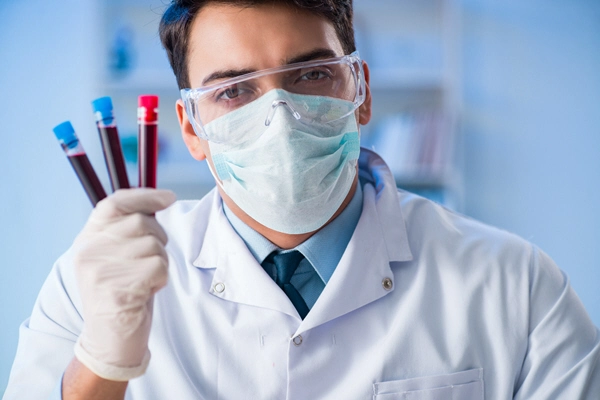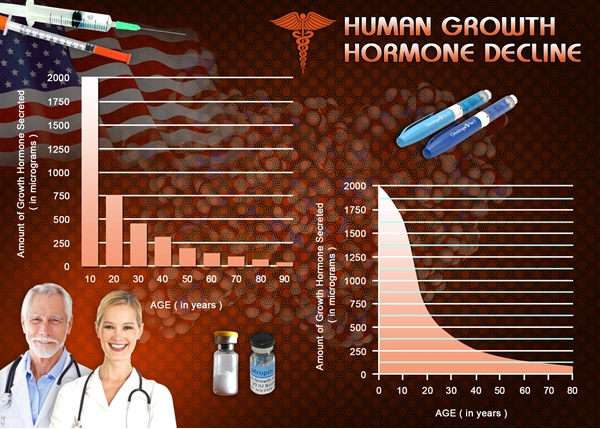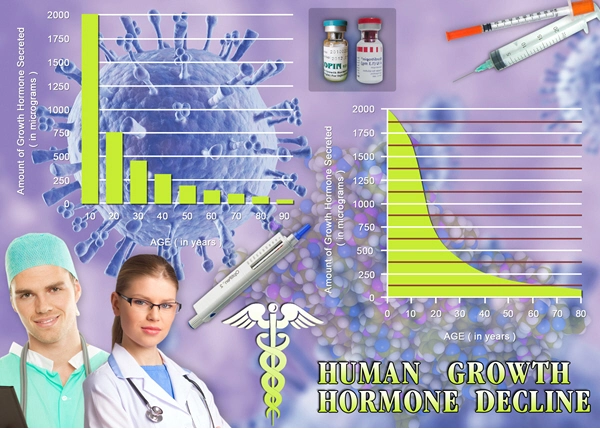Introduction
Erectile dysfunction (ED) is a prevalent concern among American males, affecting millions and significantly impacting quality of life. Recent research has begun to unravel the complex relationship between various medications and the incidence of ED. This article delves into a comprehensive study examining over 1000 American men on diverse medications to understand how medication side effects contribute to the development of ED. By exploring these connections, we aim to provide valuable insights for both healthcare providers and patients navigating the delicate balance between treatment benefits and potential sexual health risks.
Study Overview and Methodology
The study involved a diverse cohort of over 1000 American men, aged between 30 and 70, who were prescribed various medications for conditions ranging from hypertension and depression to diabetes and cardiovascular diseases. Participants were monitored over a period of two years, during which they reported any instances of ED and related symptoms. The research team utilized validated questionnaires, such as the International Index of Erectile Function (IIEF), to assess the severity and frequency of ED. Additionally, detailed medical histories and medication records were reviewed to establish correlations between specific drugs and the onset of ED.
Key Findings on Medication-Induced ED
The study revealed a significant association between certain classes of medications and an increased incidence of ED. Notably, antihypertensive drugs, particularly beta-blockers and diuretics, were linked to a higher prevalence of ED among participants. Similarly, selective serotonin reuptake inhibitors (SSRIs), commonly prescribed for depression, were found to contribute to sexual dysfunction in a substantial portion of the cohort. Furthermore, the research highlighted that the cumulative effect of multiple medications, or polypharmacy, exacerbated the risk of developing ED, with nearly 40% of men on three or more medications reporting severe ED symptoms.
Mechanisms Behind Medication-Induced ED
Understanding the biological mechanisms through which medications induce ED is crucial for developing strategies to mitigate these effects. Antihypertensive drugs, for instance, can impair erectile function by reducing blood flow to the penile arteries. SSRIs, on the other hand, may disrupt the delicate balance of neurotransmitters involved in sexual arousal and orgasm. The study also explored the role of hormonal imbalances, particularly testosterone levels, which can be affected by medications such as statins and certain antidiabetic drugs. These findings underscore the need for a holistic approach to patient care, considering both the therapeutic benefits and potential sexual health risks of prescribed medications.
Implications for Clinical Practice
The results of this study have significant implications for clinical practice, emphasizing the importance of discussing potential sexual side effects with patients before initiating treatment. Healthcare providers are encouraged to consider alternative medications with lower risks of ED when possible, and to monitor patients closely for any signs of sexual dysfunction. Additionally, the study advocates for the integration of sexual health assessments into routine medical evaluations, ensuring that patients receive comprehensive care that addresses all aspects of their well-being.
Patient Perspectives and Coping Strategies
From the patient's perspective, the study highlighted the emotional and psychological toll of medication-induced ED. Many participants expressed feelings of frustration and diminished self-esteem, underscoring the need for supportive care and open communication with healthcare providers. Coping strategies, such as lifestyle modifications and the use of ED medications like phosphodiesterase type 5 inhibitors (PDE5Is), were found to be effective in managing symptoms for some men. The study also emphasized the importance of patient education, empowering individuals to make informed decisions about their treatment options and sexual health.
Conclusion
This comprehensive study sheds light on the complex interplay between medication side effects and the incidence of erectile dysfunction among American men. By identifying specific drugs and mechanisms associated with ED, the research provides valuable guidance for healthcare providers and patients alike. As we continue to advance our understanding of this critical issue, it is essential to prioritize patient-centered care that balances the benefits of medication with the preservation of sexual health and overall well-being.

- Lifestyle Changes to Combat Erectile Dysfunction in American Men [Last Updated On: December 29th, 2025] [Originally Added On: February 19th, 2025]
- Unlocking Passion: Strategies for Overcoming Erectile Dysfunction and Enhancing Intimacy [Last Updated On: February 25th, 2025] [Originally Added On: February 24th, 2025]
- Embarking on the Journey from Despair to Victory: Navigating Erectile Dysfunction Challenges Gradually [Last Updated On: February 25th, 2025] [Originally Added On: February 25th, 2025]
- Unveiling the Hidden Stories: Triumph Over Erectile Dysfunction [Last Updated On: February 26th, 2025] [Originally Added On: February 26th, 2025]
- Decoding Desire: Unravelling the Biochemical Basis of Erectile Dysfunction [Last Updated On: February 27th, 2025] [Originally Added On: February 27th, 2025]
- Ascend Beyond Adversities: A Modern Take on Masculinity and Erectile Dysfunction [Last Updated On: February 28th, 2025] [Originally Added On: February 28th, 2025]
- Demystifying Misconceptions: A Comprehensive Guide on Erectile Dysfunction [Last Updated On: February 28th, 2025] [Originally Added On: February 28th, 2025]
- Unraveling the Web: How Affective Processing Impacts Erectile Dysfunction [Last Updated On: March 1st, 2025] [Originally Added On: March 1st, 2025]
- Efficacy Spectrum: Topical Comparison between Erectile Dysfunction Drugs [Last Updated On: March 2nd, 2025] [Originally Added On: March 2nd, 2025]
- Revitalizing Intimacy: Exploring Innovative Treatments and Therapies for Restoring Love and Libido in Relationships [Last Updated On: March 3rd, 2025] [Originally Added On: March 2nd, 2025]
- Advancements in Enhancing Intimacy: A Comprehensive Guide to Modern Medical Interventions in Sexual Health [Last Updated On: March 3rd, 2025] [Originally Added On: March 2nd, 2025]
- The Interplay of Love and Libido: Modern Medicine's Impact on Enhancing Intimacy [Last Updated On: March 2nd, 2025] [Originally Added On: March 2nd, 2025]
- Advancements in Sexual Medicine: Restoring Love and Libido for a Brighter Future [Last Updated On: March 3rd, 2025] [Originally Added On: March 2nd, 2025]
- Reviving Love and Libido: Exploring Innovative Medical Solutions for Intimacy and Relationship Spark [Last Updated On: March 2nd, 2025] [Originally Added On: March 2nd, 2025]
- Exploring Modern Medical Interventions for Enhancing Sexual Health and Intimacy: Hormonal Treatments, Psychological Therapies, and Advanced Erectile Dysfunction Solutions [Last Updated On: March 3rd, 2025] [Originally Added On: March 3rd, 2025]
- Comprehensive Guide to Understanding and Treating Erectile Dysfunction [Last Updated On: March 4th, 2025] [Originally Added On: March 4th, 2025]
- Exploring the Emotional and Psychological Impacts of Erectile Dysfunction on Men [Last Updated On: March 5th, 2025] [Originally Added On: March 5th, 2025]
- Understanding Erectile Dysfunction: Causes, Treatments, and Role of Nitric Oxide [Last Updated On: March 6th, 2025] [Originally Added On: March 6th, 2025]
- The Evolution of Erectile Dysfunction Treatments: From Ancient Remedies to Modern Innovations [Last Updated On: March 7th, 2025] [Originally Added On: March 7th, 2025]
- Advancements in Erectile Dysfunction Treatment: Technology's Impact on American Men's Health [Last Updated On: March 8th, 2025] [Originally Added On: March 8th, 2025]
- The Critical Role of Blood Flow in Erectile Dysfunction: Vascular Health Implications [Last Updated On: March 9th, 2025] [Originally Added On: March 9th, 2025]
- Unraveling the Battle: Testosterone's Influence on Erectile Dysfunction in American Men [Last Updated On: March 12th, 2025] [Originally Added On: March 12th, 2025]
- Unveiling Triumph: Real-Life Journeys Through Erectile Dysfunction Recovery [Last Updated On: March 13th, 2025] [Originally Added On: March 13th, 2025]
- Navigating the Path to Recovery: Understanding and Managing Erectile Dysfunction [Last Updated On: March 15th, 2025] [Originally Added On: March 15th, 2025]
- Unveiling the Truth: Debunking Myths About Erectile Dysfunction in American Men [Last Updated On: March 15th, 2025] [Originally Added On: March 15th, 2025]
- Effective Non-Pharmacological Strategies for Managing Erectile Dysfunction in American Males [Last Updated On: March 18th, 2025] [Originally Added On: March 18th, 2025]
- Overcoming Erectile Dysfunction: A United Approach for Couples [Last Updated On: March 18th, 2025] [Originally Added On: March 18th, 2025]
- Erectile Dysfunction: Cultural Impact, Treatment, and Societal Shifts in American Males [Last Updated On: March 19th, 2025] [Originally Added On: March 19th, 2025]
- Innovative Therapies and Technologies Transforming Erectile Dysfunction Treatment [Last Updated On: March 19th, 2025] [Originally Added On: March 19th, 2025]
- Global ED Treatments: Insights and Options for American Men [Last Updated On: March 19th, 2025] [Originally Added On: March 19th, 2025]
- Exploring Alternative Therapies for Erectile Dysfunction in American Males [Last Updated On: March 19th, 2025] [Originally Added On: March 19th, 2025]
- Managing Erectile Dysfunction: A Holistic Approach for American Males [Last Updated On: March 19th, 2025] [Originally Added On: March 19th, 2025]
- Understanding and Managing Erectile Dysfunction: A Holistic Approach for American Men [Last Updated On: March 20th, 2025] [Originally Added On: March 20th, 2025]
- Telemedicine Revolutionizes ED Treatment: Benefits, Challenges, and Future Prospects [Last Updated On: March 20th, 2025] [Originally Added On: March 20th, 2025]
- Erectile Dysfunction: Treatment Costs, Insurance, and Affordable Options for American Men [Last Updated On: March 21st, 2025] [Originally Added On: March 21st, 2025]
- Erectile Dysfunction: Debunking Myths and Understanding Prevalence in American Males [Last Updated On: March 22nd, 2025] [Originally Added On: March 22nd, 2025]
- Diet and Exercise: Enhancing Libido and Combating Erectile Dysfunction in American Males [Last Updated On: March 22nd, 2025] [Originally Added On: March 22nd, 2025]
- Stress, Sleep Deprivation, and Erectile Dysfunction: A Holistic Approach for American Men [Last Updated On: March 22nd, 2025] [Originally Added On: March 22nd, 2025]
- Exploring Effective Treatments for Erectile Dysfunction: Options and Innovations [Last Updated On: March 22nd, 2025] [Originally Added On: March 22nd, 2025]
- Counseling's Crucial Role in Managing Erectile Dysfunction: A Holistic Approach [Last Updated On: March 22nd, 2025] [Originally Added On: March 22nd, 2025]
- Personalized Medicine Revolutionizes ED Treatment: Tailoring Therapies to Individual Needs [Last Updated On: March 23rd, 2025] [Originally Added On: March 23rd, 2025]
- Exercise as a Holistic Approach to Combatting Erectile Dysfunction in American Males [Last Updated On: March 23rd, 2025] [Originally Added On: March 23rd, 2025]
- Understanding Erection Physiology and Managing Erectile Dysfunction in American Men [Last Updated On: March 24th, 2025] [Originally Added On: March 24th, 2025]
- Wearable Technology Revolutionizes ED Management for American Males [Last Updated On: March 24th, 2025] [Originally Added On: March 24th, 2025]
- Emerging Treatments for Erectile Dysfunction: Novel Therapies and Personalized Medicine [Last Updated On: March 24th, 2025] [Originally Added On: March 24th, 2025]
- Managing Performance Anxiety and Erectile Dysfunction in American Men: Strategies and Solutions [Last Updated On: March 24th, 2025] [Originally Added On: March 24th, 2025]
- Erectile Dysfunction as an Early Indicator of Cardiovascular Health in American Men [Last Updated On: March 25th, 2025] [Originally Added On: March 25th, 2025]
- Work Stress and Its Impact on Erectile Dysfunction in American Men [Last Updated On: March 25th, 2025] [Originally Added On: March 25th, 2025]
- Exploring the Cycle of ED, Depression, and Anxiety in American Men [Last Updated On: March 25th, 2025] [Originally Added On: March 25th, 2025]
- Celebrity Influence on ED Awareness: Encouraging Open Dialogue and Proactive Health Management [Last Updated On: March 25th, 2025] [Originally Added On: March 25th, 2025]
- Erectile Dysfunction in American Men: Causes, Diagnosis, and Holistic Management Strategies [Last Updated On: March 25th, 2025] [Originally Added On: March 25th, 2025]
- Managing Erectile Dysfunction: Causes, Treatments, and Lifestyle Tips for American Men [Last Updated On: March 25th, 2025] [Originally Added On: March 25th, 2025]
- ED Clinics Transform Lives: Innovative Treatments and Holistic Care [Last Updated On: March 25th, 2025] [Originally Added On: March 25th, 2025]
- Managing Chronic Illness and ED: Strategies for American Men's Sexual Health [Last Updated On: March 25th, 2025] [Originally Added On: March 25th, 2025]
- CBT: A Promising Psychological Approach to Treating Erectile Dysfunction in American Males [Last Updated On: March 25th, 2025] [Originally Added On: March 25th, 2025]
- Revolutionizing ED Treatment: Breakthroughs in Science and Technology [Last Updated On: March 26th, 2025] [Originally Added On: March 26th, 2025]
- Nutrition's Role in Managing Erectile Dysfunction: Key Vitamins and Nutrients [Last Updated On: March 26th, 2025] [Originally Added On: March 26th, 2025]
- Vascular Health's Crucial Role in Preventing and Managing Erectile Dysfunction [Last Updated On: March 26th, 2025] [Originally Added On: March 26th, 2025]
- Enhancing Sexual Vitality: Diet, Lifestyle, and Supplements for American Men's Health [Last Updated On: March 26th, 2025] [Originally Added On: March 26th, 2025]
- Erectile Dysfunction: Understanding Prevalence, Psychological Impact, and Self-Esteem Recovery Strategies [Last Updated On: March 26th, 2025] [Originally Added On: March 26th, 2025]
- Navigating Erectile Dysfunction: Strategies for Couples to Maintain Intimacy [Last Updated On: March 26th, 2025] [Originally Added On: March 26th, 2025]
- Nerve Damage: A Critical Cause of Erectile Dysfunction in American Men [Last Updated On: March 26th, 2025] [Originally Added On: March 26th, 2025]
- Innovative Therapies and Technology Transforming Erectile Dysfunction Treatment [Last Updated On: March 27th, 2025] [Originally Added On: March 27th, 2025]
- Herbal Remedies for Erectile Dysfunction: Ginseng, Maca, and More Explored [Last Updated On: March 27th, 2025] [Originally Added On: March 27th, 2025]
- Erectile Dysfunction: Causes, Treatments, and Holistic Management Strategies [Last Updated On: March 27th, 2025] [Originally Added On: March 27th, 2025]
- Restorative Sleep's Impact on Erectile Function in American Men [Last Updated On: March 27th, 2025] [Originally Added On: March 27th, 2025]
- Erectile Dysfunction: Impact, Healing, and Support for American Men and Relationships [Last Updated On: March 28th, 2025] [Originally Added On: March 28th, 2025]
- Physical Therapy: A Holistic Approach to Treating Erectile Dysfunction in American Males [Last Updated On: March 28th, 2025] [Originally Added On: March 28th, 2025]
- Holistic Approaches to Overcome Erectile Dysfunction in American Men [Last Updated On: March 28th, 2025] [Originally Added On: March 28th, 2025]
- Managing Performance Anxiety and Erectile Dysfunction: A Holistic Approach [Last Updated On: March 28th, 2025] [Originally Added On: March 28th, 2025]
- Understanding Erectile Dysfunction: Anatomy, Causes, and Management Strategies [Last Updated On: March 28th, 2025] [Originally Added On: March 28th, 2025]
- Natural and Lifestyle Approaches to Managing Erectile Dysfunction in American Males [Last Updated On: March 29th, 2025] [Originally Added On: March 29th, 2025]
- PDE5 Inhibitors: Revolutionizing Erectile Dysfunction Treatment in American Males [Last Updated On: March 29th, 2025] [Originally Added On: March 29th, 2025]
- Navigating ED Consultations: A Comprehensive Guide for American Men [Last Updated On: March 29th, 2025] [Originally Added On: March 29th, 2025]
- Prostate Health and Erectile Dysfunction: Understanding the Vital Connection for Men [Last Updated On: March 30th, 2025] [Originally Added On: March 30th, 2025]
- Erectile Dysfunction: Holistic Management for American Men's Sexual Health [Last Updated On: March 30th, 2025] [Originally Added On: March 30th, 2025]
- Erectile Dysfunction: Impact, Communication, and Recovery Strategies for Couples [Last Updated On: March 31st, 2025] [Originally Added On: March 31st, 2025]
- Erectile Dysfunction: Harnessing Positivity and Mental Strategies for American Men [Last Updated On: April 1st, 2025] [Originally Added On: April 1st, 2025]
- Erectile Dysfunction in American Men: Causes, Stigma, and Effective Management Strategies [Last Updated On: April 3rd, 2025] [Originally Added On: April 3rd, 2025]
- Transforming ED Challenges into Opportunities for Deeper Relationship Intimacy [Last Updated On: April 4th, 2025] [Originally Added On: April 4th, 2025]



List of USA state clinics - click a flag below for blood testing clinics.
Word Count: 639


















































